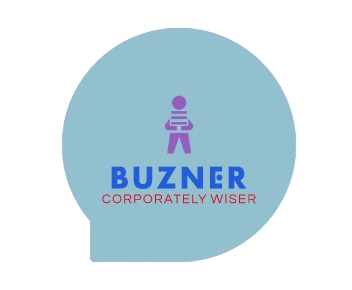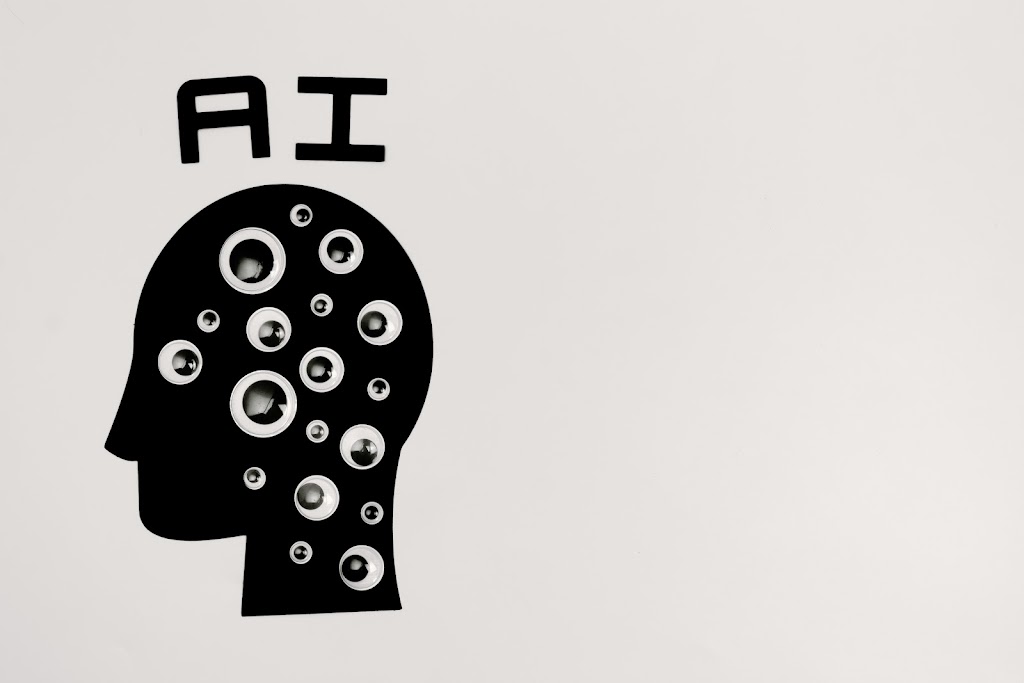1. The Role of AI in Modern Management
The Role of AI in Modern Management
AI has emerged as a transformative force in modern management practices. It plays a multifaceted role in optimizing business operations, decision-making, and strategy. AI-driven analytics sift through vast datasets to provide valuable insights, enabling managers to make informed decisions swiftly. Additionally, AI-powered automation streamlines repetitive tasks, enhancing efficiency and reducing operational costs. AI-driven chatbots and virtual assistants assist in customer service and internal communication, improving overall productivity. Moreover, AI’s predictive capabilities facilitate better forecasting and risk assessment, enabling proactive strategies.
An Overview of How AI Is Transforming Management Practices
AI is reshaping management practices across industries. In marketing, AI-powered algorithms analyze consumer behavior to personalize campaigns, increasing customer engagement. In supply chain management, AI optimizes inventory and logistics, reducing waste and costs. HR departments use AI to streamline recruitment and improve employee retention. Strategic planning benefits from AI-driven data analysis, identifying growth opportunities and competitive advantages. As AI continues to evolve, its impact on management will grow, requiring leaders to adapt to new tools and approaches to remain competitive and responsive to a rapidly changing business landscape.
2. AI Ethics: An Introduction
Defining AI Ethics and Its Significance
AI ethics refers to the set of principles and guidelines that govern the behavior and decision-making of artificial intelligence systems. It serves as a moral compass, ensuring that AI aligns with human values, rights, and societal norms. The significance of AI ethics lies in its potential to prevent harm, promote fairness, and uphold human dignity in the age of AI. By defining ethical boundaries, AI ethics mitigates risks associated with biased outcomes, privacy violations, and unintended consequences, making AI more accountable and responsible.
The Ethical Framework for Responsible AI Adoption
Responsible AI adoption relies on a robust ethical framework that guides its development and deployment. This framework includes key elements such as transparency, accountability, data privacy, and continuous evaluation. Transparency ensures that AI decision-making processes are understandable, fostering trust. Accountability establishes clear responsibility for AI-related decisions, while data privacy safeguards individuals’ information. Continuous evaluation allows adaptation to evolving technologies and ethical considerations, ensuring that AI serves humanity ethically and responsibly.
Ethical Considerations in AI Management
3. Transparency and Accountability
The Importance of Transparent AI Decision-Making Processes
Transparent AI decision-making processes are crucial for several reasons. Firstly, they promote trust and understanding among users and stakeholders. When AI systems operate behind a veil of secrecy, it can lead to skepticism and suspicion, hindering their acceptance and adoption. Transparent AI, on the other hand, allows individuals to comprehend how decisions are made, enabling them to trust and work effectively with AI technologies.
Moreover, transparency is essential for identifying and addressing biases and errors within AI systems. By making the decision-making process visible, it becomes easier to detect and rectify any discriminatory or unfair outcomes. This not only promotes fairness but also helps AI developers refine their algorithms, making them more accurate and equitable over time.
Holding AI Systems and Their Operators Accountable for Outcomes
Accountability in AI is a critical component of responsible AI adoption. It involves establishing clear lines of responsibility for AI-related decisions, ensuring that individuals, organizations, and developers are answerable for the consequences of AI systems. Accountability fosters a sense of responsibility and encourages ethical behavior throughout the AI lifecycle.
Holding AI systems and their operators’ accountable helps prevent misuse and unethical practices. It also provides a mechanism for addressing harm caused by AI, whether it’s in the form of biased outcomes, privacy violations, or unintended consequences. By enforcing accountability, we create a culture of responsibility in the AI landscape, where the benefits of AI can be realized without compromising ethics and societal values.
4. Bias and Fairness
Understanding Algorithmic Bias and Its Implications
Algorithmic bias refers to the systematic and unfair discrimination present in AI systems’ decisions or predictions. This bias can emerge from biased training data or flawed algorithms, leading to unequal treatment of different individuals or groups. The implications of algorithmic bias are significant, ranging from reinforcing existing societal inequalities to causing harm to marginalized communities. Biased AI can lead to discriminatory outcomes in areas like hiring, lending, and criminal justice, perpetuating injustices. Understanding the root causes and consequences of algorithmic bias is essential for developing ethical and fair AI systems.
Strategies for Mitigating Bias in AI Systems
To create fair and unbiased AI systems, strategies for bias mitigation are crucial. These include:
- Diverse and Representative Data: Ensure training data is diverse and representative to minimize bias. This involves collecting data from various sources and demographics.
- Bias Audits: Regularly audit AI algorithms to identify and rectify biases. Implement bias detection tools and metrics.
- Fairness-aware Algorithms: Develop algorithms that are explicitly designed to mitigate bias and promote fairness in decision-making.
- Human Oversight: Include human oversight in AI processes to make judgments on contentious cases and ensure fairness.
- Transparency: Make AI decision-making processes transparent to allow external scrutiny and accountability.
- Continuous Monitoring: Continuously monitor AI systems post-deployment to detect and address emerging biases.
5. Privacy and Data Protection
Balancing Data-Driven Insights with Individual Privacy
The advent of AI has ushered in an era of data-driven decision-making, but it must be balanced with the protection of individual privacy. Collecting and analyzing vast amounts of personal data can provide valuable insights, but it also poses significant privacy risks. Striking the right balance involves implementing robust data anonymization techniques, encryption, and access controls to safeguard sensitive information. It also necessitates transparent data collection practices and clear consent mechanisms, ensuring that individuals are aware of how their data is used. By respecting privacy boundaries, organizations can harness the power of data while preserving individual rights and trust.
Compliance with Data Protection Regulations (e.g., GDPR)
They are paramount in the digital age. Compliance with these regulations is not only a legal obligation but also a commitment to ethical data handling. GDPR, for instance, mandates stringent requirements for data processing, storage, and consent. Organizations must implement data protection impact assessments, appoint data protection officers, and report data breaches promptly. Adherence to such regulations not only avoids legal repercussions but also demonstrates a commitment to respecting individual privacy and data security, fostering trust among customers and users.
6. Job Displacement and Workforce Impact
Addressing Concerns About Job Displacement Due to AI
The integration of AI in the workforce has raised legitimate concerns about job displacement. As AI systems automate tasks and processes, some traditional roles may become redundant. However, it’s important to recognize that AI can also create new opportunities and augment existing jobs. To address these concerns, proactive measures are essential. Organizations should engage in responsible AI deployment, where the focus is on task automation, not wholesale job replacement. Additionally,
governments, businesses, and educational institutions should collaborate to develop comprehensive workforce strategies that consider the changing landscape. This includes reskilling, upskilling, and promoting adaptability to ensure that employees are prepared for the AI-driven future.
Reskilling and Upskilling Programs for Affected Employees
To mitigate the workforce impact of AI, reskilling and upskilling programs are vital. These initiatives empower employees with the skills and knowledge needed to remain relevant in the evolving job market. Companies can partner with educational institutions to offer training in areas like AI literacy, data analytics, and problem-solving. Governments can provide incentives for businesses to invest in employee development. Moreover, fostering a culture of continuous learning within organizations is crucial. By equipping employees with the tools to adapt and thrive in the AI era, we can navigate the transformation of the workforce with greater confidence and inclusivity.
Responsible AI Implementation
7. AI Governance and Policies
Developing Clear AI Governance Frameworks Within Organizations
Effective AI governance is essential for organizations that embrace artificial intelligence. A well-defined AI governance framework establishes rules, procedures, and responsibilities to guide AI development and deployment. It includes guidelines for data handling, algorithm transparency, and ethical considerations. Such frameworks foster accountability, mitigate risks, and ensure that AI aligns with the organization’s values and objectives. Key components may involve appointing AI ethics committees, conducting impact assessments, and regularly auditing AI systems. By developing robust AI governance frameworks, organizations can harness the benefits of AI while minimizing potential pitfalls and maintaining trust.
Ensuring Alignment with Regulatory Guidelines
In the evolving AI landscape, compliance with regulatory guidelines is paramount. Governments and regulatory bodies are increasingly recognizing the need to govern AI to protect individuals and society. Organizations must ensure that their AI initiatives align with these regulations, such as GDPR, to safeguard data privacy and prevent discriminatory practices. This alignment not only helps avoid legal penalties but also demonstrates a commitment to responsible AI. Regular monitoring and adaptation to changing regulatory landscapes are essential to maintain ethical and legal AI operations.
8. Ethical AI Development
The Ethical Design and Development of AI Algorithms
Ethical AI development begins with the design and creation of AI algorithms. Developers must prioritize ethical considerations throughout the entire development lifecycle. This includes ensuring fairness and transparency in algorithms, avoiding biased training data, and regularly auditing for unintended consequences. Ethical design also involves addressing complex issues like privacy protection, consent mechanisms, and the potential societal impacts of AI. By embedding ethics into the core of AI development, we can create systems that not only perform well but also uphold fundamental values and principles.
The Role of Interdisciplinary Teams in Ensuring Ethical AI
Interdisciplinary teams play a vital role in ensuring the ethical development of AI. These teams bring together experts from various fields, including ethics, data science, law, and social sciences, to assess and address ethical challenges comprehensively. Their collaboration helps identify potential biases, ethical pitfalls, and societal implications of AI projects. Interdisciplinary teams also facilitate diverse perspectives and ensure that AI aligns with the broader interests and values of society. By involving such teams, organizations can navigate the complex terrain of ethical AI development with greater sensitivity and effectiveness.
9. Human-AI Collaboration
Promoting Collaboration Between AI Systems and Human Employees
Promoting collaboration between AI systems and human employees is essential for harnessing the full potential of AI in the workplace. Instead of viewing AI as a replacement, organizations should emphasize its role as an augmentation tool. This involves integrating AI into daily workflows to assist, streamline tasks, and enhance productivity. Collaboration encourages knowledge sharing and learning, enabling employees to focus on complex problem-solving and creative tasks while AI handles repetitive, data-intensive work. By fostering a harmonious partnership between humans and AI, organizations can create a more efficient and dynamic workforce that adapts to the changing technological landscape.
Enhancing Decision-Making Through Human-AI Synergy
Human-AI synergy is a powerful tool for improving decision-making processes. AI systems can analyze vast datasets, identify patterns, and generate insights at a speed and scale beyond human capability. When integrated effectively, AI can provide decision-makers with valuable information, enabling them to make more informed and data-driven choices. However, the human touch remains crucial in interpreting AI-generated insights, considering ethical implications, and making nuanced decisions. By combining the strengths of both humans and AI, organizations can achieve a synergy that enhances decision-making, driving innovation and competitiveness.
Case Studies in Responsible AI
10. Industry-Specific Examples
Responsible AI practices have made significant impacts across various industries, leading to improved business outcomes and ethical advancements.
- In healthcare, AI-driven diagnostic tools like IBM’s Watson for Oncology assist oncologists in making treatment decisions. By analyzing vast medical data, it helps identify personalized treatment plans, reducing the risk of misdiagnosis and improving patient outcomes.
- In finance, banks like JPMorgan Chase employ AI for fraud detection. This proactive approach saves millions by preventing fraudulent transactions, enhancing security, and safeguarding customer trust.
- The automotive industry has seen the advent of self-driving cars. Companies like Waymo, a subsidiary of Alphabet, use AI to make roads safer and reduce accidents caused by human error.
- Retailers like Amazon optimize supply chain management using AI to forecast demand, reduce excess inventory, and enhance customer satisfaction through timely deliveries.
- In legal services, AI-driven platforms like ROSS automate legal research, saving lawyers time and ensuring comprehensive legal insights for clients.
Across these industries, ethical AI practices not only improve efficiency and accuracy but also contribute to better business outcomes, emphasizing the significant role of responsible AI in the modern world.
Challenges and Future Outlook
11. Challenges in Ethical AI Management
Identifying and Addressing Barriers to Responsible AI Adoption
Responsible AI adoption faces several challenges that must be identified and addressed. One significant barrier is the lack of awareness and understanding of AI ethics among developers and decision-makers. Overcoming this hurdle requires comprehensive education and training programs. Additionally, issues like data bias, privacy concerns, and transparency shortcomings can hinder responsible AI implementation. These challenges call for rigorous data governance, ethical guidelines, and thorough audits. Regulatory complexities and legal ambiguities surrounding AI also pose challenges, necessitating collaboration between governments, industries, and AI experts. By proactively addressing these barriers, organizations can pave the way for responsible AI adoption that aligns with ethical principles and societal values.
Ethical Dilemmas and Gray Areas in AI Decision-Making
AI decision-making often encounters ethical dilemmas and gray areas that challenge traditional ethical frameworks. For instance, AI may face dilemmas in situations where conflicting ethical principles are at play, such as balancing privacy with security. Additionally, the attribution of accountability in case of AI errors or harm can be unclear, raising ethical concerns. The dynamic nature of AI technology further complicates ethical considerations as new scenarios emerge. To navigate these complexities, organizations need flexible and adaptable ethical frameworks that can evolve with AI advancements. It’s essential to engage in ongoing ethical discourse, involve interdisciplinary teams, and seek guidance from experts to address these dilemmas and ensure responsible AI development and deployment.
12. The Future of Ethical AI in Management
Emerging Trends in Responsible AI, Including AI Ethics Consulting
The future of ethical AI in management is characterized by emerging trends aimed at enhancing responsible AI adoption. One such trend is the growing importance of AI ethics consulting. Organizations are increasingly seeking the expertise of AI ethics consultants to navigate the complex ethical landscape of AI development and deployment. These consultants provide guidance on ethical frameworks, bias mitigation, transparency, and compliance with regulations. They help organizations align their AI initiatives with ethical principles and societal values, fostering trust and accountability.
The Role of AI in Promoting Corporate Social Responsibility
AI is poised to play a pivotal role in promoting corporate social responsibility (CSR). Responsible AI adoption can lead to more ethical and sustainable business practices. AI can assist in supply chain transparency, reducing environmental impact, and addressing societal challenges. Moreover, AI-driven analytics can help organizations make more informed CSR decisions, measure social and environmental impacts, and enhance reporting. As AI continues to evolve, its integration with CSR initiatives will enable companies to make more meaningful contributions to society while maintaining ethical standards. This synergy between AI and CSR will be a driving force for positive change in the business world.
Conclusion:
AI is a powerful tool that can revolutionize business management. However, with great power comes great responsibility. Ensuring the ethical and responsible use of AI in management is not just a choice but an imperative for long-term success. By embracing transparency, accountability, and fairness, businesses can harness the full potential of AI while upholding ethical values and societal trust.
As we stand on the frontier of AI-driven management, let responsible and ethical AI be our guiding star.









